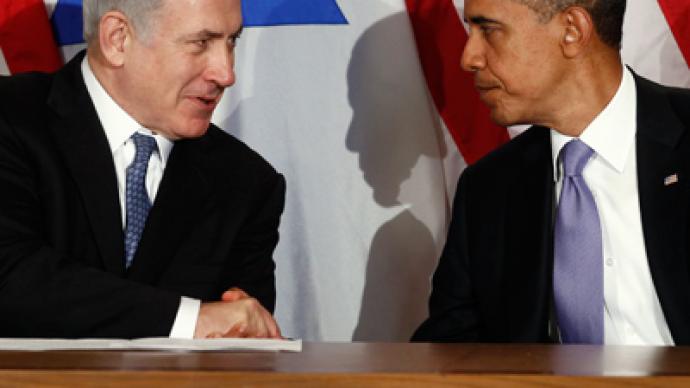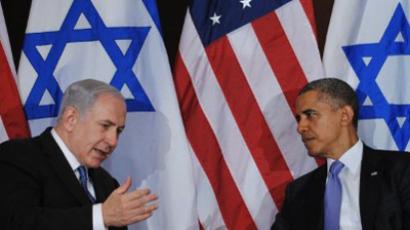US and Israel clash over attack on Iran

American-Israeli relations have not been so bright recently.
The visit of a top Obama administration official was supposed to ease tensions between the countries but instead it might have only widened the gap regarding attitudes toward the Iranian nuclear problem. President Obama's National Security Adviser Tom Donilon arrived in Israel this week and sat with Prime Minister Benjamin Netanyahu for two hours to warn Israel against unilateral attack on Iran. According to the Israeli news outlet Debka, however, this message didn't sit well with the hawkish leader. To military sources that have spoken to Debka, Netanyahu is believed to be upset that the US is willing to work with Iran in terms of a possible nuclear program, giving them the go-ahead as long as they promise to avoid enrichment that will lead to them developing nukes. Iran has long insisted that any nuclear related efforts are in the work for energy procurement, although the US and Israel have been called this into question. The Obama administration has so far avoided any military action against Iran, hoping instead that international sanctions and strong words will serve as enough of a warning to keep Tehran from working on warheads. Netanyahu, on the other hand, is not convinced. He is not willing to wait for an optimistic outcome and doesn't rule out a strike on Iran. Last month, Deputy Prime Minister Moshe Yaalon explicitly called the Obama administration "hesitant” in their unwillingness to attack, which was followed by a warning only a day later by the nation’s Foreign Minister Avigdor Lieberman, in which he urged the US to "move from words to deeds.”Lately, however, the US is relying less on threats in terms of taking down a weapons program and more on the hope that Iran will keep their word that the nuclear enrichment program there won’t be used for a warhead. According to the latest reports to the media made by American officials close to the matter, an US strike on Iran is currently out of the cards. Following the recent, nearly unprecedented deployment of Iranian warships into the Mediterranean Sea, Israel appears closer than ever in coming down hard on Iran. US Joint Chiefs of Staff Commander Gen. Martin E. Dempsey warned to CNN this week that an attack at anytime soon simply wouldn’t be “prudent.”“A strike at this time would be destabilizing and wouldn’t achieve their long-term objectives,” Gen. Dempsey cautioned to CNN host Fareed Zakaria.“I wouldn’t suggest…that we’ve persuaded them that our view is the correct view and that they are acting in an ill-advised fashion,” added Dempsey.The US is now hoping that as other countries sign on to detest a nuclear program, Iran will throw in the towel. To Bloomberg Business Week, Israeli Defense Minister Ehud Barak shared similar thoughts, noting, “I think there is consensus in most capitals of the world that Iran should not be allowed to turn into a nuclear military power.”Last week, US Defense Intelligence Agency Director Lieutenant General Ronald Burgess said Iran will not start the war in the Middle East, unless, of course, the US acts first. Burgess also added that, despite increased sanctions imposed by the US and a buildup of American military forces surrounding the country, Iran is unlikely to halt the nuclear program that has become the cause of international concern."Iran can close the Strait of Hormuz at least temporarily, and may launch missiles against United States forces and our allies in the region if it is attacked," Burgess explained this week to a Senate Armed Services Committee hearing."Iran could also attempt to employ terrorist surrogates worldwide. However, the agency assesses Iran is unlikely to initiate or intentionally provoke a conflict," he added.Israel, it would seem, is not as willing to wait for that outcome and could very well clash with Iran before the US makes up its mind.Both the US and Israel will coordinate on a joint missile exercise, the largest of its kind, in Israel later this year.














